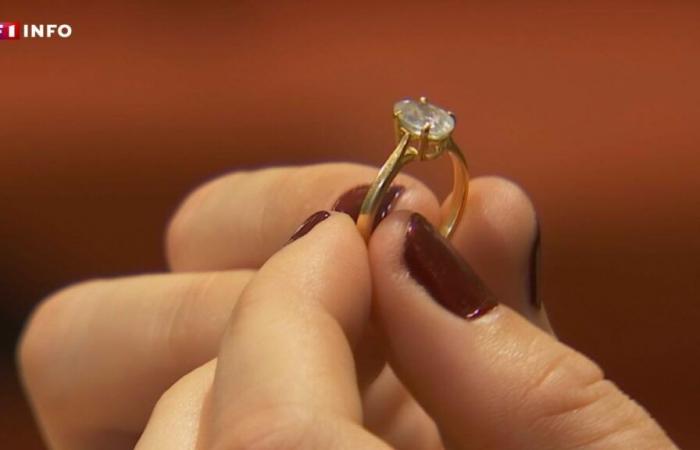The highest court in Massachusetts has ruled in favor of a man who sought to recover the jewelry given to his future wife from whom he is now separated.
This isn’t the first time couples have clashed in the East Coast state’s courts over the expensive outward sign of engagement.
But this is the first time that the judges did not seek to establish who was at fault in the break in order to know who should get the stone.
Their love story took a turn for the worse, leading them to court. Seven years after their separation, an American couple finally settled their dispute before the Supreme Judicial Court of Massachusetts. At the heart of the debates? The fate of the engagement ring purchased from a famous jeweler with little blue boxes, estimated at $70,000. Monsieur asked to be able to recover the jewel still in Madame’s possession since their breakup.
After love at first sight in the summer of 2016, Caroline Settino and Bruce Johnson got engaged a year later. Except that their relationship quickly deteriorates. According to a story from New York Times (new window)he says he felt humiliated by his partner who “treated him like a child” et “did not accompany him during his treatments for prostate cancer”. Suspecting her of adultery, he annuls the marriage and, in the process, files a complaint to recover the jewel. In these kinds of cases, the State of Massachusetts has been trying for decades to determine who is responsible for the separation to establish who should get the ring.
A year and a half of relationship, six years in court
At first instance three years ago, the court found that the plaintiff was at the origin of the separation “on the basis of his erroneous belief” that his companion “had an affair”. The latter was therefore able to keep her ring. Her ex appealed and obtained custody of the jewelry and wedding rings of the same brand, pushing the young woman to take the matter to the local Court of Cassation as a last resort. This incredible back and forth ended this Friday with an unprecedented decision in this State, without looking for a culprit for the breakup. “‘When the planned marriage does not take place, the engagement gift must be returned to the giver,’ regardless of the responsible party”ruled the court.
-
Read also
“It’s super moving”: at 13, a teenager from Charente celebrates his mother’s wedding
“Assessing liability when one party concludes that the marriage plan will fail is inconsistent with the primary purpose of an engagement period which is to test the permanence of the couple’s desire to marry.”specify the judges cited by the New York Times. The disappointed fiancé’s lawyer reminds the daily that the dispute “lasted six years, their relationship only a year and a half.” History does not say whether the price of the ring made it possible to reimburse the costs incurred in this strange legal battle.






